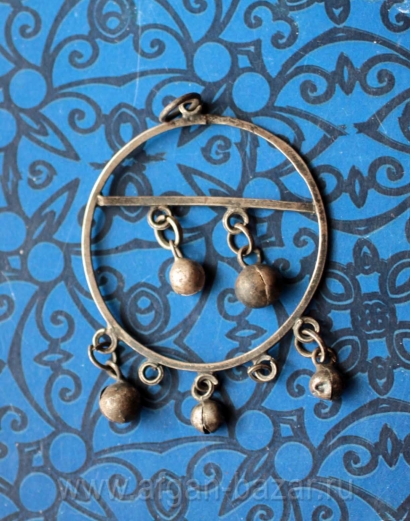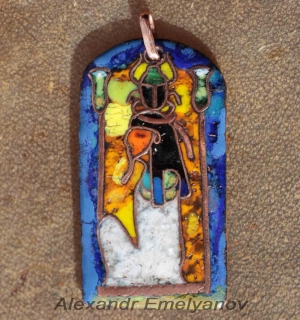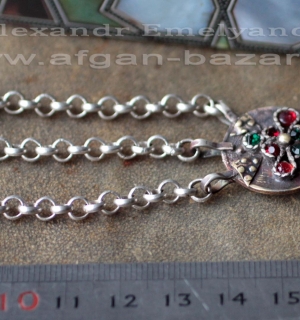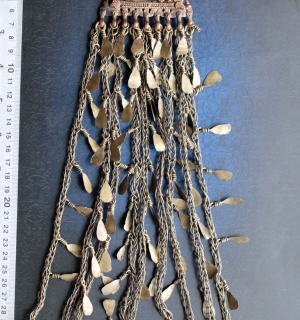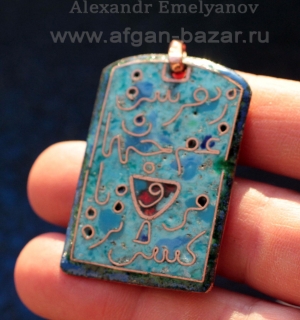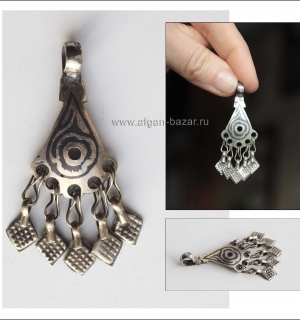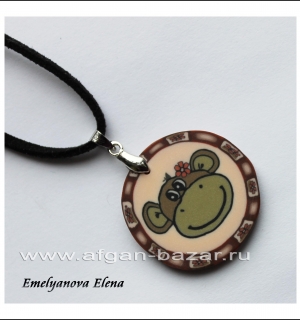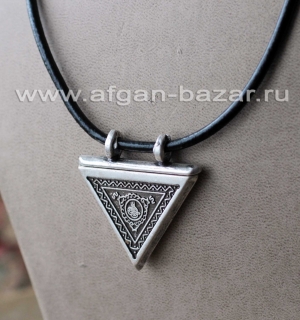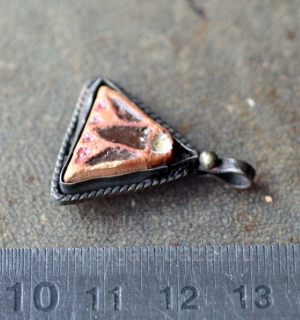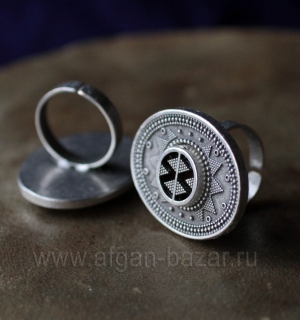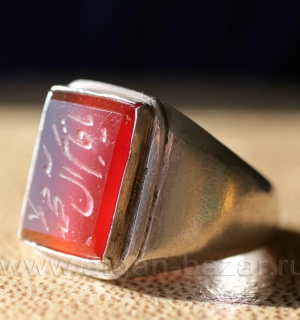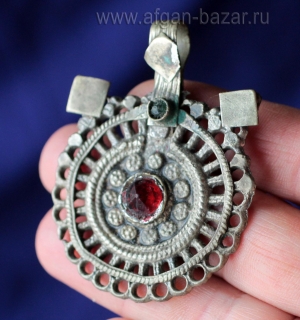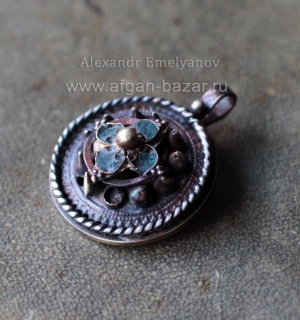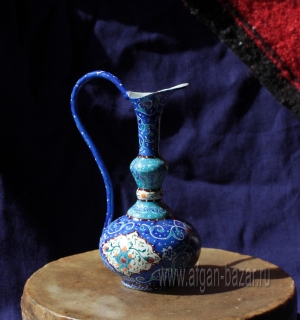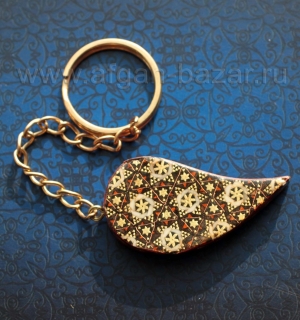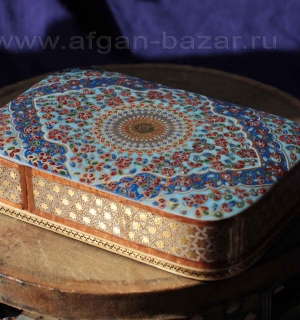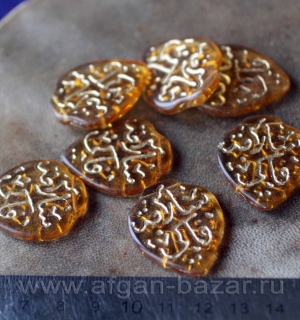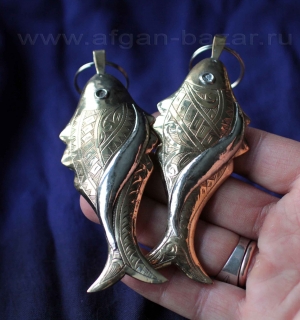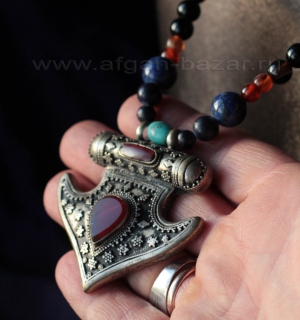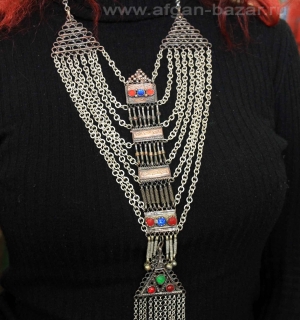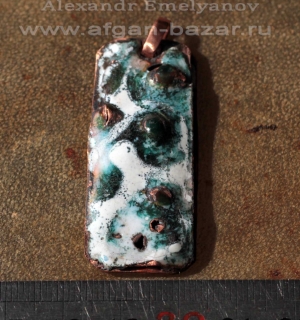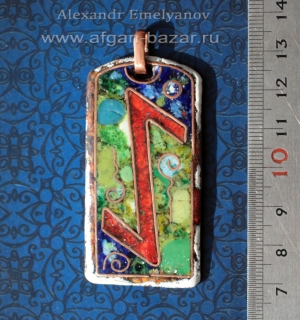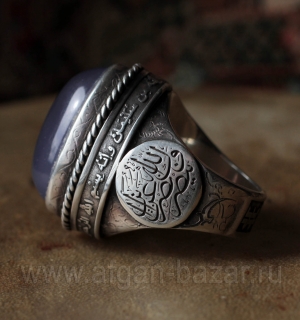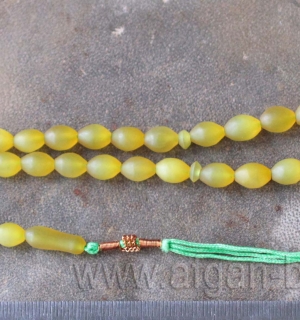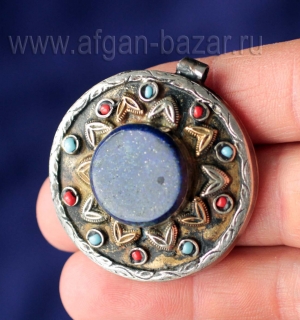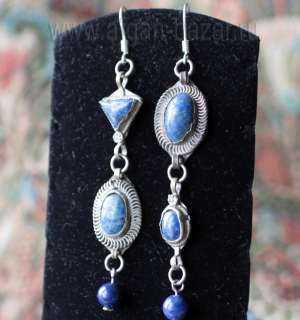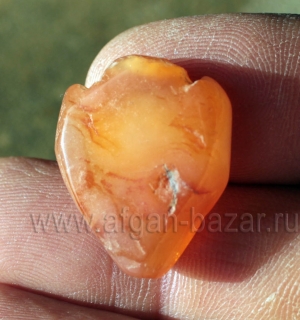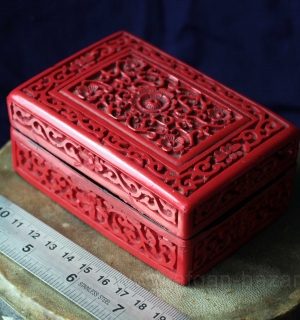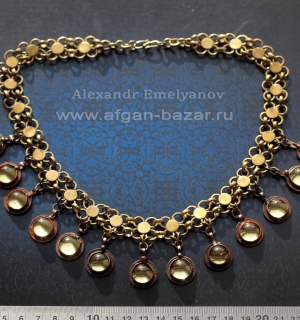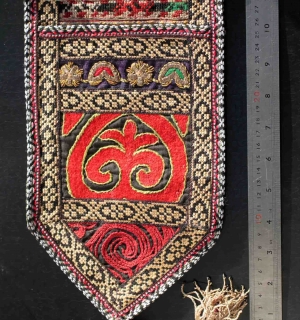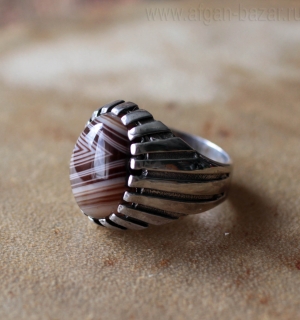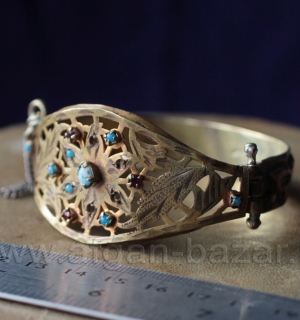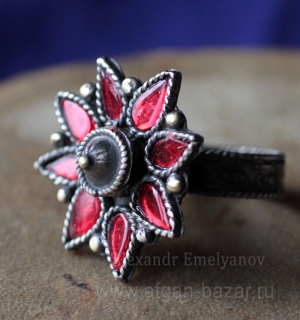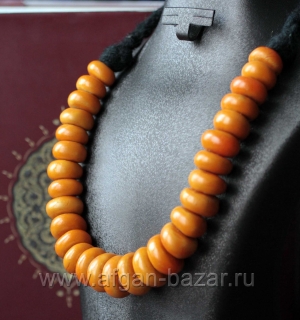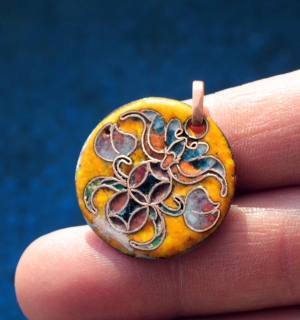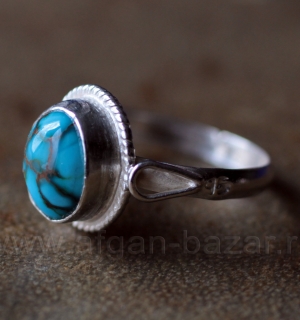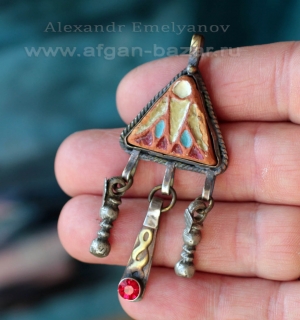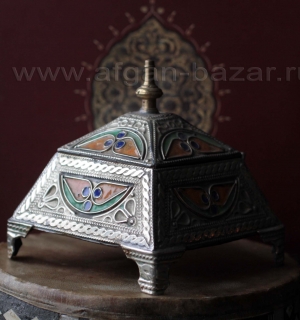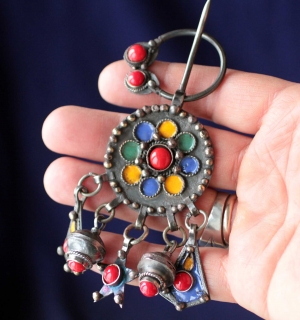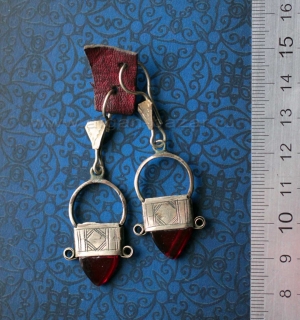Винтажная египетская подвеска - детский амулет "zur'a".
Египет, Каир, 1965-67 гг.
Маркировки - "Цветок лилии", مق ٦٠, ص
Сплав серебра (60%), ручная работа
Размер - 45/32 мм.
Вес - 3 г.
Подобные подвески-амулеты могли использоваться в церемонии Зар, а также быть специальным детским амулетом для девочек.
Амулеты для мальчиков имели более вытянутую каплевидную форму. Считается, что этот амулет надевали детям для защиты от злобного духа, именуемого Qarina.
Vintage Egyptian Tribal Silver Amulet Pendant "Zur'a"
Egypt, Cairo, 1965-67 yy.
Silver (60%) (Hallmarks - "Lilly", مق ٦٠, ص)
Size is 45/32 mm (1,8/1,2 ")
Weight is 3 g. (0,1 Oz).
Such amulet pendants could be used in the Zar ceremony, as well as be a special children's amulet for girls.
Amulets for boys had a more elongated teardrop shape. It is believed that this amulet was worn by children to protect them from an evil spirit called Qarina.
Despite the fact that these ornaments could be worn in everyday life, their main purpose - ZAR dance ceremony held by Egyptian women.
The tradition of ZAR ceremonies dates back its roots to pre-Islamic shamanistic beliefs of Central Africa. Traditional Islam has a negative attitude to such practices. It is believed that the dance of the ZAR has penetrated into Egypt in the 19th century together with immigrants and slaves from Ethiopia and South Sudan.
The ZAR ceremony is performed by women, under the guidance of older, sometimes older woman to the music and drum beat, and musicians can be men. ZAR is a complex ritual, which includes a variety of offerings to the spirits and the Jinn. But the Central element is a special trance dance performed by women. The main purpose of this ceremony - healing of various illnesses and stress, achieved by catharsis and nervous emancipation in the state of deep trance. This can be traced the resemblance of the Egyptian and Iranian ZAR ceremonies, with the traditional TRANS practices of the Berbers of Morocco (Gnawa, etc.). Special charms and jewelry are also part of the ceremony of ZAR. These amulets contain special symbols, both pagan and Muslim character, a schematic image of people, spirits, animals, fish, mythical creatures, as well as quotations from the Qur'an and Islamic prayer formulas. Moreover, there is a version that images of people are also symbols of spirits, which is devoted to the ceremony. In particular is one of the popular images - the man in the image of an Ottoman Pasha in a FEZ or officer who is actually a Genie (Jinn Yaura Bey). Sometimes he is depicted alone, sometimes together with a woman. Frequent character on amulets ZAR - "mermaid" - a woman with a fish tail.
Jewelry and amulets for the ceremony of ZAR made in a rough colloquial style. It may be, ankle and hand bracelets, ring with magical symbols and numbers, but the most popular rectangular earrings with pendants-bells, and necklaces and pendants separate, often round in shape, also with bells soldered at the bottom. The image on the plane of the amulets cause rough sketchy lines using hand engraving graver, at least - with a stamp.
The material for these ornaments is often a silver alloy with a silver content of 60%, at least 80%.More rarely, the gold ornaments and amulets of ZAR, as this tradition is prevalent mostly among the common people of the middle and lower classes.
References:
1. Azza Fahmi. The Traditional Jewelry of Egypt. / Fahmy A. – Cairo-New York: AUC Press, 2015. – p. 176-183.
2. Sigrid van Roode. Desert Silver. Nomadic and traditional silver jewelery from the Middle East and North Africa / Sigrid van Roode – Amsterdam: KIT Publishers 2010 – p. 66-70.
Другие товары из этой категории
-
7 550 ₽
-
890 ₽
-
4 990 ₽
-
1 400 ₽
-
400 ₽
-
20 ₽
-
750 ₽
-
1 450 ₽

